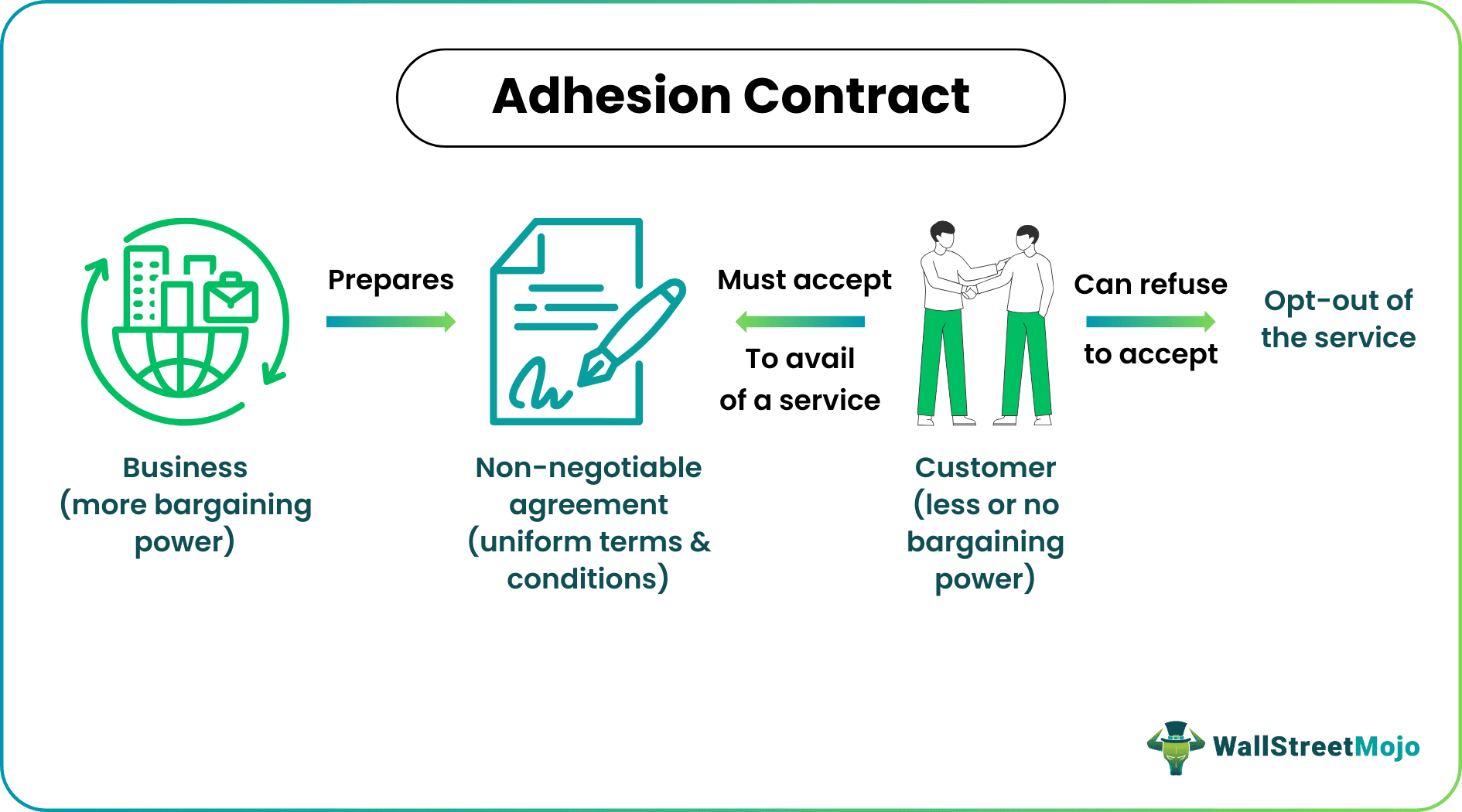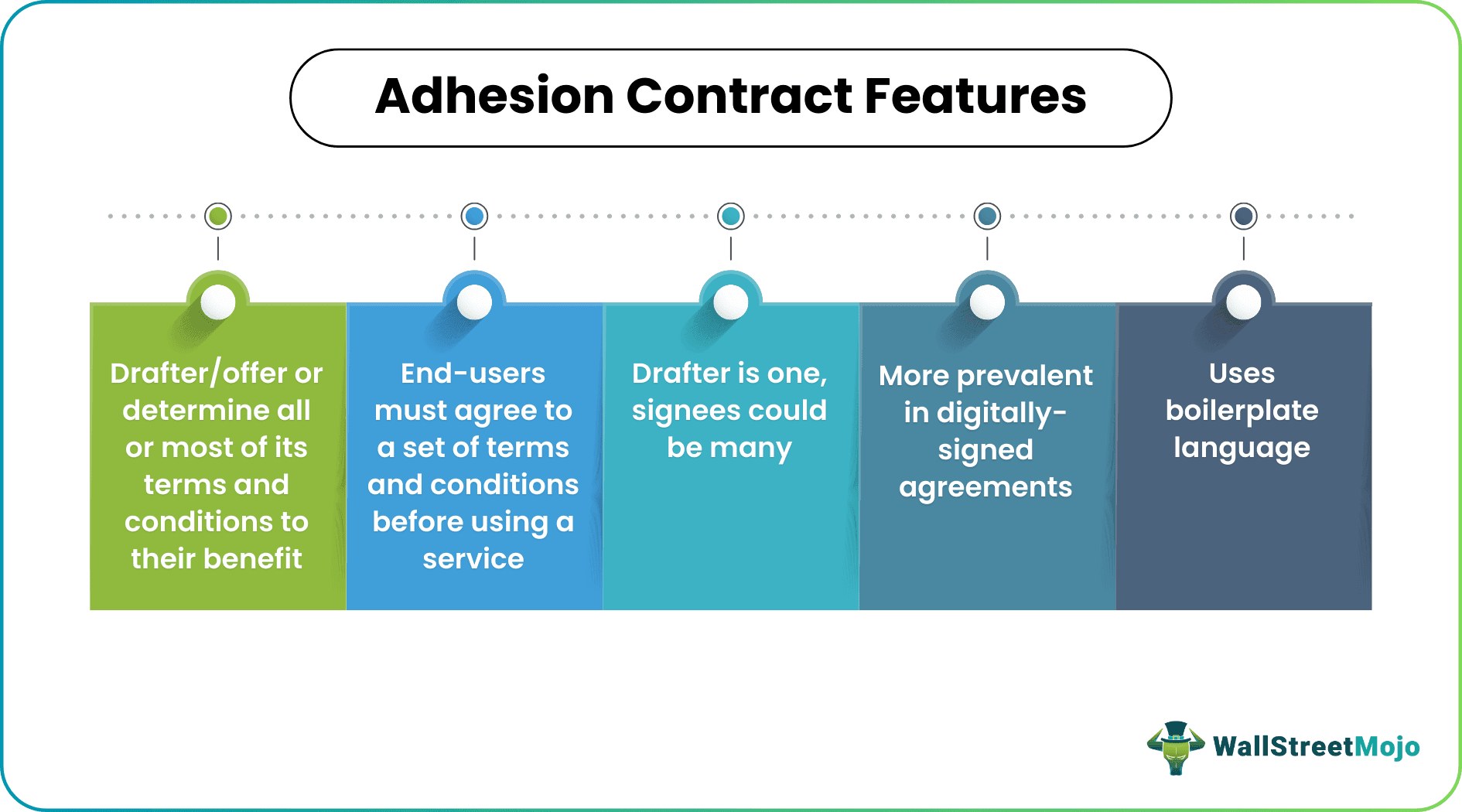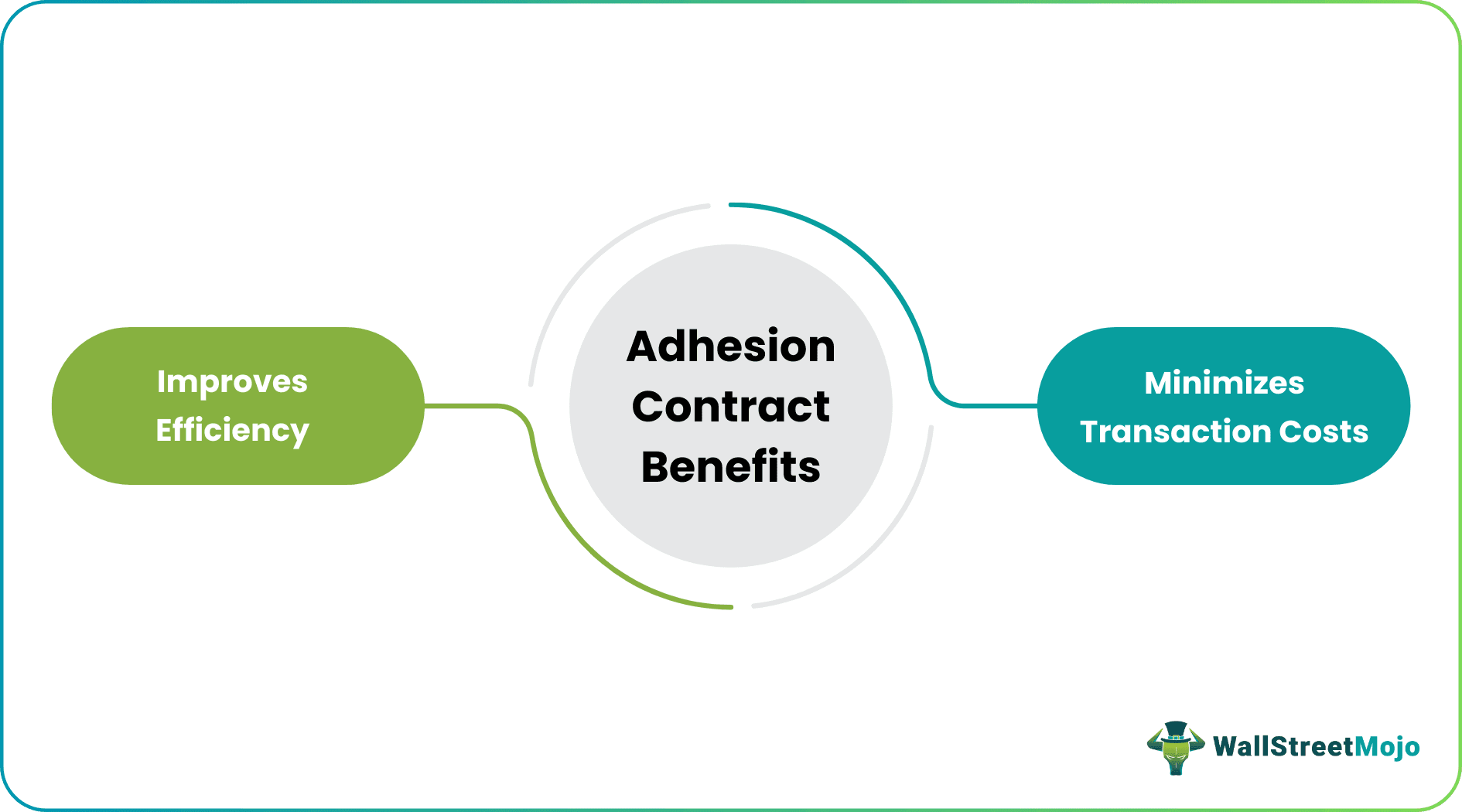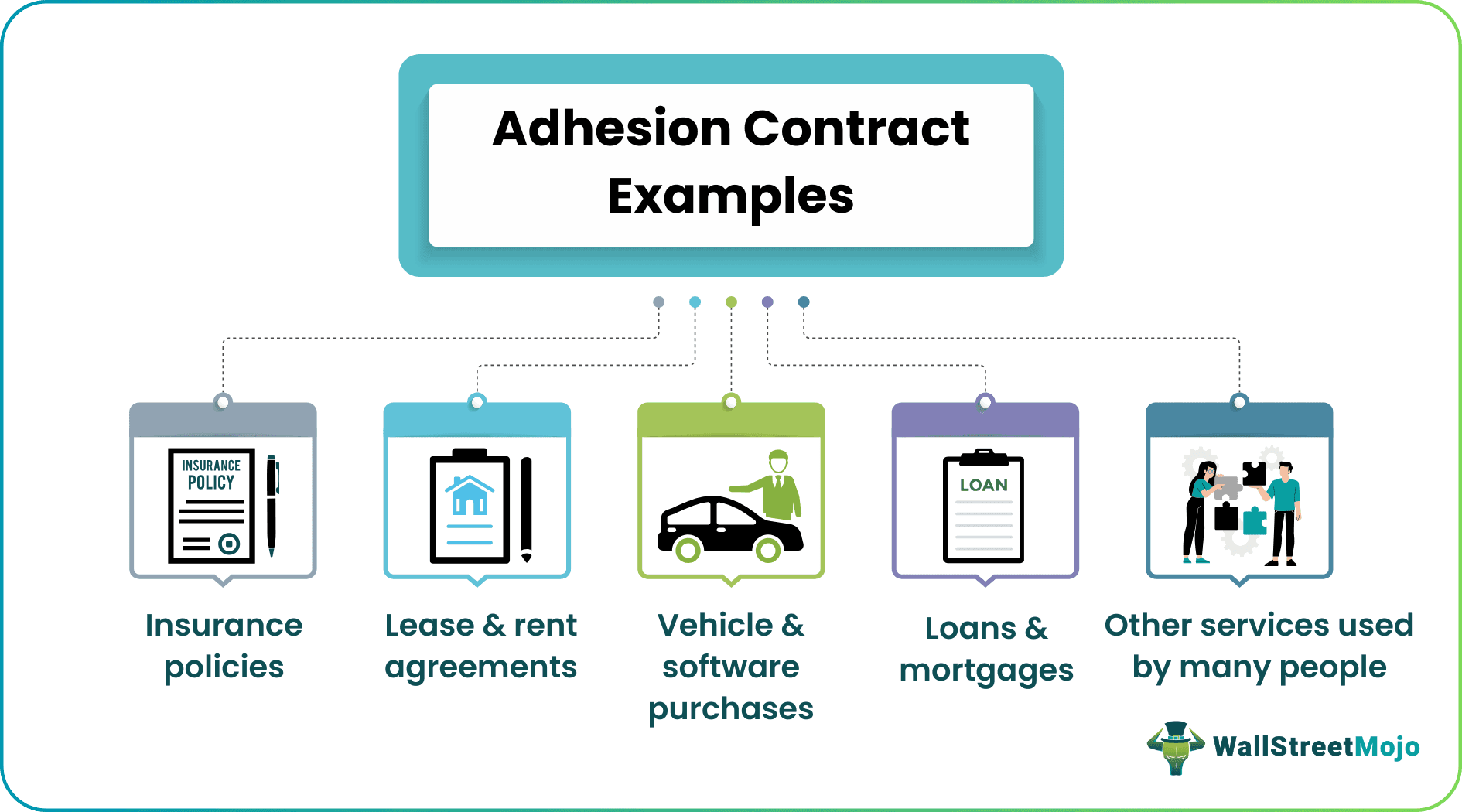Table Of Contents
What Is Adhesion Contract?
Adhesion contract refers to a non-negotiable contract in which one party (the business) has greater power than the other (the consumer) in determining all or most of its terms and provisions. Thus, end-users must agree to a set of terms and conditions before using a service.

The agreement, also known as standard form, boilerplate, or leonine contracts, leaves no room for negotiation between the parties. As a result, it is a ‘take it or leave it’ agreement. Here, the drafter could be one entity with significant bargaining power, but signees could be many with little or no negotiation ability. The contract's goal is to increase business efficiency while lowering transaction costs.
Key Takeaways
- Adhesion contract definition describes a non-negotiable agreement usually between the business and customers, with the former having stronger bargaining power to decide the terms and clauses to their benefit.
- It is most effective for service providers who outline uniform terms and conditions for all users to improve efficiency and minimize transaction costs.
- Because of jurisdiction differences, changes in the adhesion contract law over time, and uneven bargaining power, the court retains the authority to assess whether the contract's terms are fair and enforceable.
- In the United States, the standard form contract is enforceable under the Uniform Commercial Code (UCC).
How Adhesion Contract Works?
An adhesion contract works best for service providers outlining the same terms and conditions for all users. Since preparing agreements individually for every user is no use when they need to follow the same clauses, the offeror drafts the contract and reveals it to everyone willing to take up its services.

The rise of e-commerce has made adhesion contracts more prevalent in digitally-signed agreements. The contract aims to make the business efficient and reduce transaction costs. However, it should not be disproportionately one-sided. The user can agree to all terms and sign the contract or disagree and walk away.

An adhesion contract is typically written by a party with greater bargaining power and signed by the other party with less or no bargaining power. Thus, the latter has no choice but to accept the terms of the agreement to avail of a service or opt-out. In other words, the drafter has complete control over contract clauses, while the user can only refuse to accept them.

These contracts are drafted under insurance policies, lease and rent agreements, vehicle and software purchases, mortgages, and other services that many people use. It contains standard terms and conditions for all users in a boilerplate language, thus, called standard form or boilerplate contract.
The drafter of a standard form contract offers a range of services in exchange for consumers agreeing to certain terms. For example, whether people buy insurance or join a social media network for the first time, they must agree to its terms and conditions. Failure to do so will prevent them from continuing. Therefore, users must read the terms and conditions carefully to ensure that they understand them and that the service provider will keep its promises.
Example
Let us take a simple scenario to understand how the standard form contract works:
Meghan needed to buy software to ensure that she could keep up with all of her office tasks while also coordinating with the other project personnel. However, the software included a potentially dangerous condition that allowed the employer to take a screenshot of the system whenever they wanted. As a result, control would remain in the hands of the project manager.
Meghan had no choice but to accept the terms to keep working. As a result, the agreement might be considered an adhesion contract example.
Is Adhesion Contract Enforceable?
Because an adhesion contract is a "take it or leave it" scenario, the user has no right to question or negotiate the clauses. Therefore, it is critical to keep an eye on the contract terms. It will ensure that the promised services are delivered without being jeopardized. As a result, the standard form contract is scrutinized.
Such contracts protect businesses and consumers from legal difficulties while saving them time and money. Since these agreements are not illegal, they are often seen as binding. However, due to diverse jurisdictions, changes in the adhesion contract law over time, and unequal negotiation power, the court reserves the right to determine whether the contract's conditions are fair and enforceable. The prominence, intent, and circumstances are also considerations in establishing the contract conditions' conscionably.
In the United States, the standard form contract is enforceable under the Uniform Commercial Code (UCC). The UCC assures that the contract terms comply with the national standards for all business transactions. Many states in the U.S. follow the UCC, but a handful still draft contracts based on their laws and norms.
The UCC has different requirements for the sale or lease of goods. Under the UCC, the standard form contract is scrutinized closely, and its meaning under state law is evaluated based on the following factors:
- Any possibility of unfair surprise
- The nature of the contract
- Contract language difficult to understand for non-legal personnel
- Obligation imbalance in the agreement
- Lack of notifications
- The exploitation of the weaker sections of the society, like the underprivileged, uneducated, etc.
- Inconsistent terms
- Possibilities of fraud
